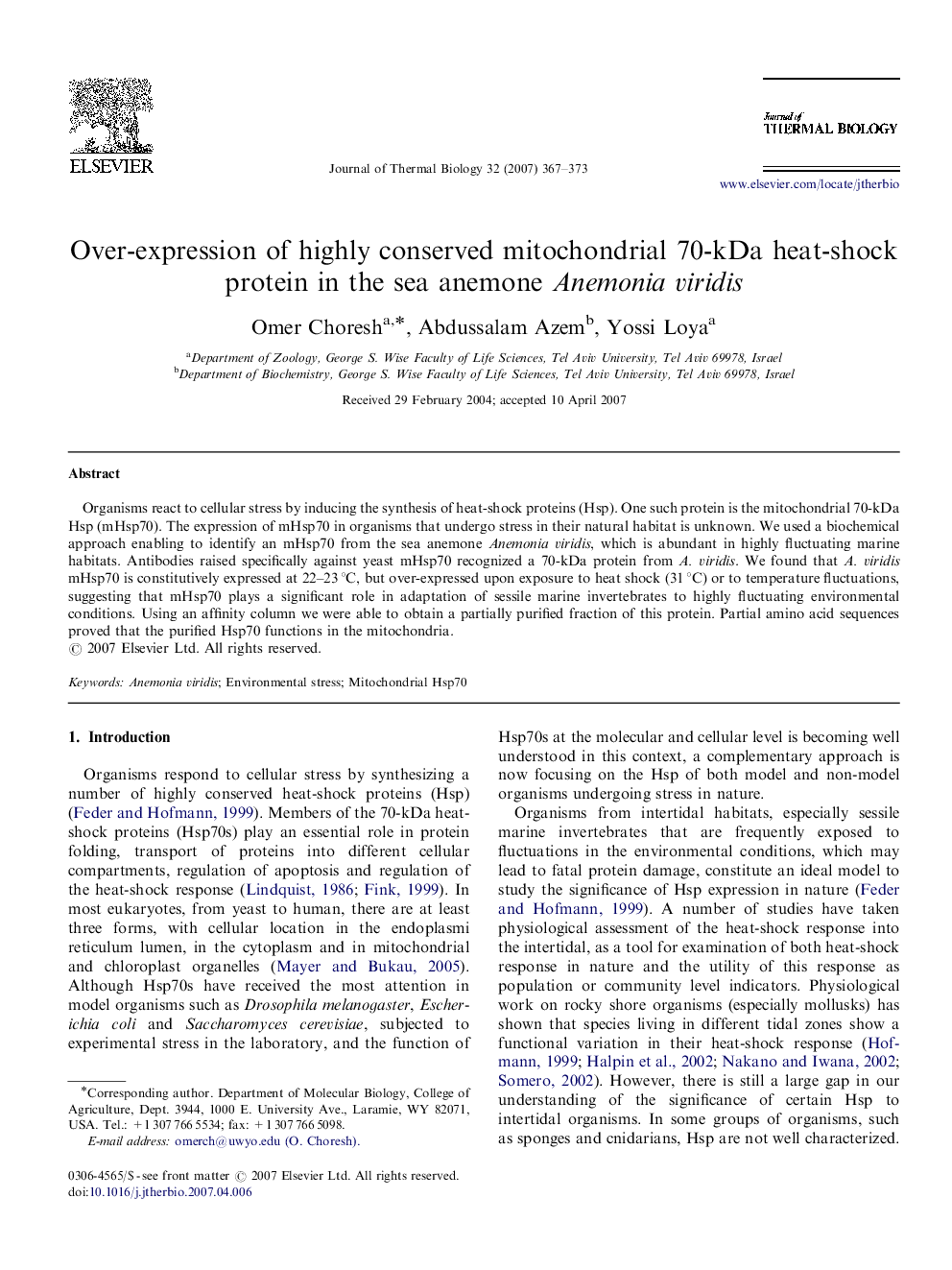| Article ID | Journal | Published Year | Pages | File Type |
|---|---|---|---|---|
| 2843650 | Journal of Thermal Biology | 2007 | 7 Pages |
Organisms react to cellular stress by inducing the synthesis of heat-shock proteins (Hsp). One such protein is the mitochondrial 70-kDa Hsp (mHsp70). The expression of mHsp70 in organisms that undergo stress in their natural habitat is unknown. We used a biochemical approach enabling to identify an mHsp70 from the sea anemone Anemonia viridis, which is abundant in highly fluctuating marine habitats. Antibodies raised specifically against yeast mHsp70 recognized a 70-kDa protein from A. viridis. We found that A. viridis mHsp70 is constitutively expressed at 22–23 °C, but over-expressed upon exposure to heat shock (31 °C) or to temperature fluctuations, suggesting that mHsp70 plays a significant role in adaptation of sessile marine invertebrates to highly fluctuating environmental conditions. Using an affinity column we were able to obtain a partially purified fraction of this protein. Partial amino acid sequences proved that the purified Hsp70 functions in the mitochondria.
